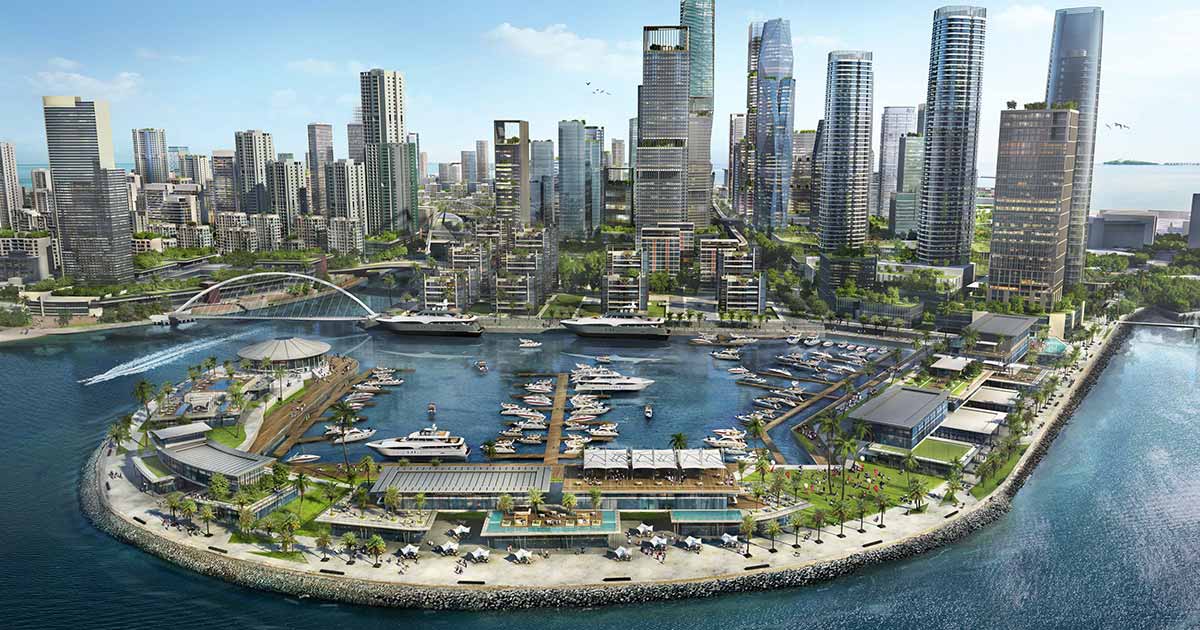-By A LeN Special Correspondent - Colombo and London

(Lanka-e-News -12.May.2025, 11.15 PM) The International Monetary Fund has stirred a geopolitical hornet’s nest in Sri Lanka — again. In the latest twist of its multi-billion-dollar financial rescue operation for the island nation, the IMF has introduced a fresh stipulation: abolish all tax concessions granted to investors in the controversial but ambitious China-backed Colombo Port City project.
The requirement, revealed by diplomatic sources close to the IMF-Sri Lanka talks, has triggered speculation that Washington’s purse strings come with more than just economic calculations. To some, it reeks of a veiled strategic rebuke of Beijing’s growing influence in the Indian Ocean — with Colombo once again caught between the ambitions of global powers.
Sri Lanka, a nation battered by its 2022 sovereign default and with little leverage left in the international financial system, is navigating a US$2.9 billion IMF programme. In exchange, the government has been required to swallow a bitter cocktail of austerity, liberalisation, and structural reforms. The latest demand — to unwind tax and customs concessions in the Port City — threatens to derail one of Sri Lanka’s key post-crisis investment pitches.
The Port City project, financed by China Harbour Engineering Company and touted as Sri Lanka’s answer to Singapore or Dubai, was granted sweeping tax breaks to lure investors: no corporate income tax for 25 years, exemptions on VAT, customs duties, and more. But now, the IMF argues these incentives are a fiscal luxury Sri Lanka cannot afford.
Publicly, the IMF insists this is simply about arithmetic. In a statement accompanying its second programme review, the Fund noted that "tax holidays and exemptions are undermining the government’s ability to meet fiscal consolidation targets," adding that all such concessions "must be rationalised in line with medium-term revenue goals."
But behind the numbers lies a geopolitical subplot. Chinese investments, especially in strategic assets like the Port City and the Hambantota Port, have long unnerved the West. Critics in Washington and New Delhi have accused Beijing of "debt-trap diplomacy," while Colombo insists it is merely diversifying its partners. The IMF's timing has therefore raised eyebrows: is this fiscal prudence, or something more calculated?
A former Sri Lankan diplomat, speaking on condition of anonymity, told The Guardian: “There’s a clear pattern — the West cloaks its geopolitical anxieties in the robes of financial policy. If the Port City had been financed by the World Bank or Japan, would these tax breaks have come under such scrutiny?”
Complicating matters is the origin story of Sri Lanka’s IMF engagement itself. In April 2022, then-Finance Minister Ali Sabry — a former legal advisor to the Rajapaksa family with no prior economic credentials — declared Sri Lanka bankrupt in an extraordinary admission. Critics point out that Sabry sought IMF assistance without even attempting bilateral financing options from countries like China, India, or the Middle East.
“This was a lawyer with no training in economics, appointed as Finance Minister during the worst financial crisis in the country's history,” said a senior Colombo-based economist. “He pressed the bankruptcy button before lifting the hood to see if the engine could still be jump-started.”
Indeed, Sabry’s appointment as "Presidential Counsel" by the Rajapaksas — a rare legal title granted to loyalists — exemplifies the politicisation of fiscal management that helped land the country in hot water.
For investors, the latest IMF condition threatens to upend carefully laid plans. "We made our investment calculations based on a legal framework. If that framework is ripped apart midstream, it will have serious implications for investor confidence," said an executive at a Singaporean private equity firm with exposure to Port City development plots.
China, for its part, has remained silent. But analysts warn that if Colombo begins reversing incentives promised under agreements with Chinese firms, it could further strain an already delicate diplomatic balance.
Sri Lanka’s predicament is emblematic of the new Cold War playing out in the Global South — one where economic recovery is often held hostage by strategic alignments. In this case, a country on life support has to choose between its largest bilateral creditor (China) and its only viable multilateral lender (IMF).
The irony? The US$2.9 billion IMF bailout — touted as Sri Lanka’s salvation — is barely a bandage for an economy that needs a tourniquet. Spread over four years and conditional on dozens of structural benchmarks, the real financial muscle has come not from the Fund but from bilateral lenders: China, India, and Japan.
Yet it is the IMF that holds the veto pen — able to unlock or block further aid from others based on its programme assessments.
The NPP administration is in a bind. Reneging on Port City tax breaks could stall one of the few major FDI pipelines still open. But defying the IMF risks jeopardizing future disbursements and signalling fiscal recklessness to other donors.
Sri Lankans, meanwhile, watch this diplomatic dance with growing cynicism. "Every time we look for help, it comes with conditions. The IMF wants our taxes raised. China wants our ports. India wants our neutrality. What do we want? To survive," said Shalini Perera, a small business owner in Colombo.
For now, the fate of the Port City — and the trajectory of Sri Lanka’s post-crisis recovery — hangs not only on balance sheets, but also on balance-of-power equations written far from the island’s shores.
-By A LeN Special Correspondent - Colombo and London
---------------------------
by (2025-05-12 17:59:04)
Leave a Reply